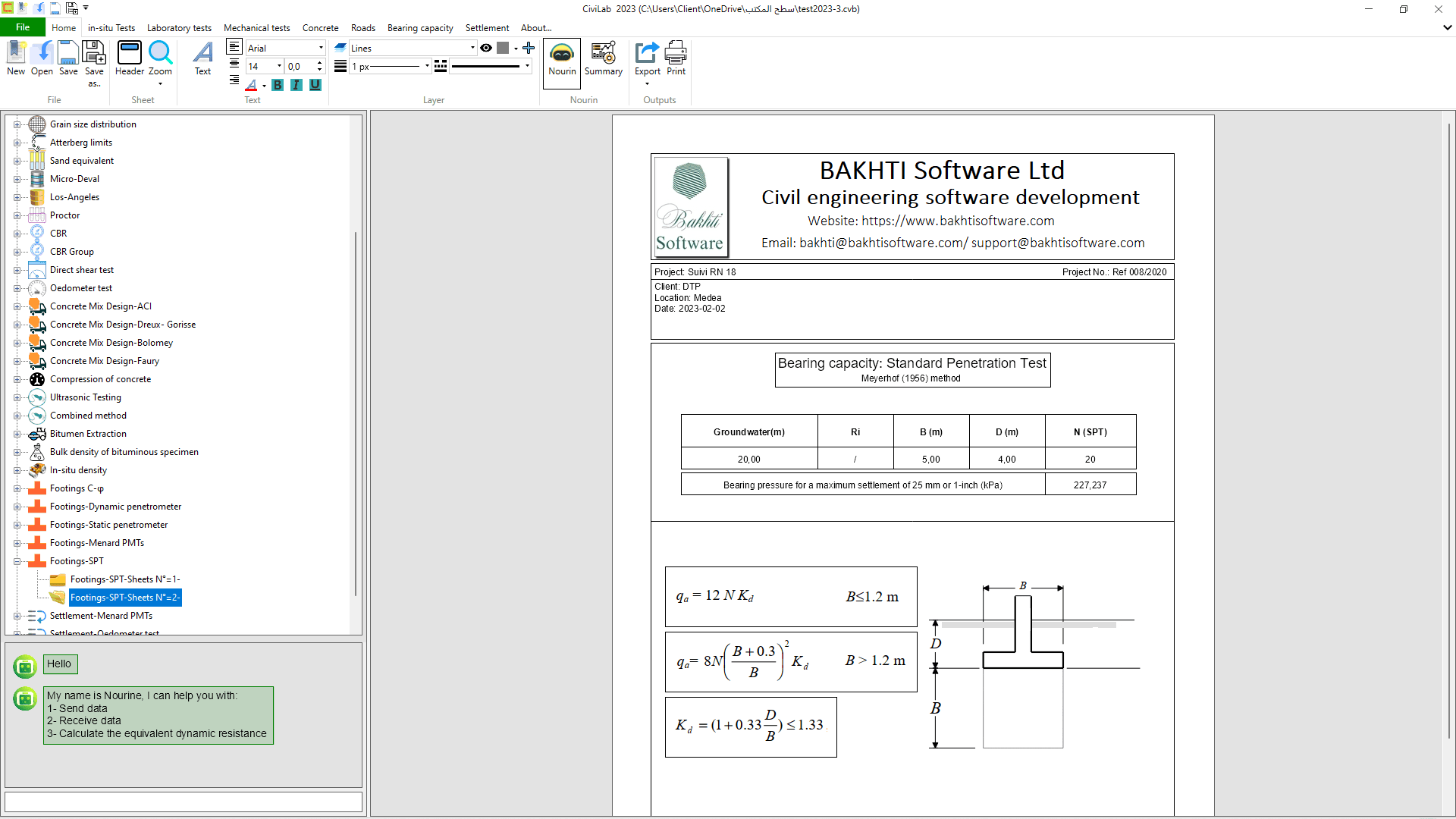Bearing capacity: standard penetration test (SPT)
The standard penetration test (SPT) is a widely used in-situ test for evaluating the geotechnical properties of soil. It involves driving a standardized steel rod into the ground using a hammer, and counting the number of blows required to drive the rod a certain depth. The results of the SPT can be used to estimate the bearing capacity of soil, which is the maximum load that the soil can support without failure. Engineers use empirical correlations between the SPT N-value and the bearing capacity of the soil to estimate the load-bearing capacity of the soil at the site. However, it is important to note that these correlations can vary depending on the soil type and other site-specific factors. Therefore, additional site investigations and laboratory tests may be necessary to refine the estimates of the soil's bearing capacity and ensure the safe and stable design of the foundations for the structure. Overall, the SPT provides a useful and cost-effective method for estimating the bearing capacity of soil and is a crucial tool in the foundation design process. CiviLab calculates the bearing capacity of an isolated footings from the results of standard penetration test (SPT) according to the following methods:
- Meyerhof (1956);
- Meyerhof modified by Bowles (SPT) 1977;
- Terzaghi & Peck (1948).
CiviLab allows you to:
- Calculate the bearing capacity of a shallow footing according to several methods;
- Provide high quality reports;
- Archive reports correctly.
With "CiviLab", you can easily calculate the bearing capacity of a shallow footing. Also, CiviLab provides high quality reports and archive them properly
Sheet sample in PDF format




